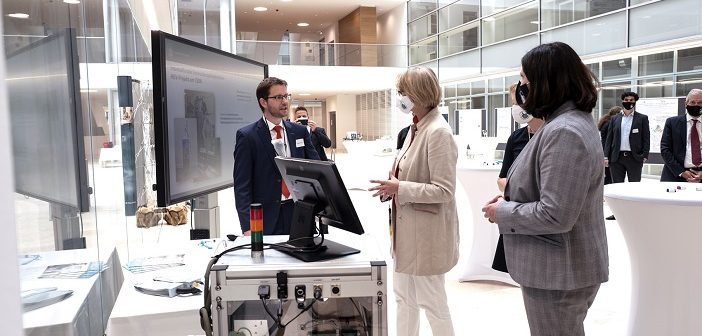SCIENTISTS at the Daresbury Laboratory, near Warrington have been awarded funding to develop a low-cost ventilator to help patients in low and middle-income countries hit by Covid-19.
Mechanical ventilation is a small but important part of the management of pandemic virus infections which affect the lungs, including SARS-CoV-1, SARS-CoV-2 (COVID-19) and influenza.
Ventilators are typically expensive to purchase and maintain, and need considerable training to use. Most also rely on the provision of high-flow oxygen and medically pure compressed air, which are not readily available in many countries around the world.
A team of researchers, co-ordinated by the Science and Technology Facilities Council’s (STFC) Daresbury Laboratory, aim to produce and test plans for the creation of an affordable, reliable and easy-to-operate ventilator which does not rely so heavily on compressed gases and mains electricity supply.
It is anticipated that these plans will be used by a wide variety of manufacturing groups across the world, thereby reducing the need for expensive transportation and maintenance.
Head of the technology department at Daresbury, Ian Lazarus, said:“I am proud to be leading this team, in which we have brought together experts from medicine, science, engineering and knowledge transfer with a shared goal to make resilient high quality ventilators available in areas of the world which currently don’t have enough of them.
“We look forward to redeploying skills that normally underpin science research into this different and very necessary field, working with medical experts in both UK and Brazil. Together we hope to make a positive impact in the current fight against COVID-19 and afterwards in the treatment of other respiratory conditions in countries where ventilators are not as readily available as they are here in the UK.” I
As well as leadership from Daresbury Lab, teams across STFC will be working on this project.
The £760,000 funding has been awarded by UK Research and Innovation (UKRI) through the Global Challenges Research Fund (GCRF), which looks to support scientists to develop solutions to mitigate the short and long-term social, economic and health impacts of the pandemic.




